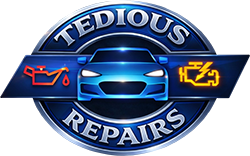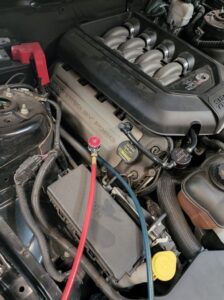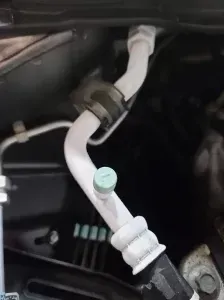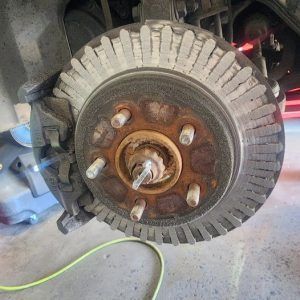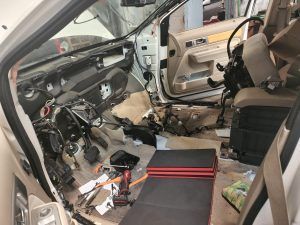Decoding The Importance Of Regular Auto Maintenance In Barber, Chico
If you own a car in Barber, Chico, then regular auto maintenance is crucial for keeping your vehicle in optimal condition. Understanding the basics of auto maintenance is the key to ensuring its longevity and performance.
By adhering to a regular maintenance schedule, you can save money in the long run by preventing costly repairs and breakdowns. Additionally, proper maintenance enhances safety by identifying potential issues before they become hazardous. It also improves your car’s performance, ensuring a smooth and enjoyable driving experience.
Finding a reliable auto maintenance provider is essential for quality service and peace of mind. They will help you create a maintenance schedule tailored to your vehicle’s needs, ensuring that all crucial components are inspected and maintained regularly.
With the importance of regular auto maintenance in mind, it’s time to take charge of your car’s well-being and ensure it stays in top shape for years to come.
Key Takeaways
- Regular auto maintenance is crucial for optimal condition, safety, and performance of your car.
- Adhering to a maintenance schedule saves money by preventing costly repairs and breakdowns.
- Regular maintenance enhances safety by identifying potential issues before they become hazardous.
- Understanding the basics of auto maintenance helps avoid costly repairs.
Understanding the Basics of Auto Maintenance
Now, let’s dive into the importance of understanding the basics of auto maintenance so you can take better care of your car and avoid costly repairs down the road.
Keeping up with regular auto maintenance is crucial for the longevity and performance of your vehicle. By familiarizing yourself with the basics, you can identify potential issues early on, preventing them from escalating into major problems.
Start by regularly checking your car’s fluids, such as oil, coolant, and transmission fluid. Proper levels and quality ensure that your engine runs smoothly and efficiently.
Additionally, inspecting your tires for wear and maintaining the correct tire pressure improves fuel efficiency and extends their lifespan.
Understanding how to change your car’s air filter is another essential maintenance skill. A clean air filter allows for proper airflow, preventing engine damage and maximizing fuel economy.
Similarly, regularly replacing your car’s spark plugs ensures optimal combustion, improving engine performance and fuel efficiency.
By taking the time to learn these basics, you’ll not only save money on costly repairs but also increase the overall lifespan of your car.
Now, let’s transition into the subsequent section about saving money with regular auto maintenance by exploring other key maintenance tasks that can extend the life of your vehicle.
Saving Money with Regular Auto Maintenance
By keeping up with routine car care, you can actually save money in the long run. Regular auto maintenance not only helps prevent major breakdowns and expensive repairs, but it also improves fuel efficiency, extends the lifespan of your vehicle, and maintains its resale value. Here are some ways in which regular auto maintenance can save you money:
- Preventing major repairs: By regularly inspecting and servicing your vehicle, you can identify and fix minor issues before they turn into costly problems. For example, changing the oil and filters at recommended intervals can prevent engine damage and costly repairs.
- Improving fuel efficiency: Neglecting basic maintenance tasks like replacing air filters or checking tire pressure can cause your vehicle to consume more fuel. By keeping these components in good condition, you can increase your gas mileage and save money at the pump.
Regular auto maintenance is an investment that pays off in the long run. By avoiding major repairs, improving fuel efficiency, and maintaining your vehicle’s value, you can keep more money in your pocket.
In the next section, we will explore how regular maintenance enhances safety and performance without compromising your budget.
Enhancing Safety and Performance
To ensure your safety on the road and maximize your vehicle’s performance, it’s crucial to prioritize regular maintenance. Regular auto maintenance not only enhances the longevity of your vehicle but also plays a vital role in keeping you safe while driving.
By regularly inspecting and servicing your vehicle, you can identify and address potential issues before they turn into major problems.
One of the key aspects of regular maintenance is checking and maintaining your vehicle’s brakes. Well-maintained brakes are essential for safe driving, as they allow you to stop quickly and effectively when needed. Regularly inspecting and replacing brake pads, rotors, and fluid ensures optimal braking performance and minimizes the risk of accidents.
Another important aspect of maintenance is ensuring your tires are in good condition. Proper tire maintenance, such as regular rotation, alignment, and inflation, not only improves the vehicle’s handling and fuel efficiency but also enhances safety by reducing the risk of tire blowouts or hydroplaning.
Regularly servicing your vehicle’s engine, transmission, and other essential components also contributes to its overall performance and reliability. By changing the oil, filters, and spark plugs, you can keep the engine running smoothly and efficiently, maximizing fuel economy and reducing the chances of breakdowns.
To find a reliable auto maintenance provider who can assist you in keeping your vehicle in top shape, it’s important to consider factors such as their experience, certifications, and customer reviews. By choosing a reputable provider, you can have peace of mind knowing that your vehicle is in capable hands.
Finding a Reliable Auto Maintenance Provider
When it comes to finding a reliable auto maintenance provider, you want to make sure you choose someone who has the experience, certifications, and positive customer reviews to give you peace of mind that your vehicle is in capable hands. Here are four key factors to consider when searching for the right provider:
- Expertise: Look for a maintenance provider with extensive knowledge and expertise in handling various types of vehicles. This ensures that they’re familiar with the specific needs and requirements of your car.
- Certifications: A reliable maintenance provider should have the necessary certifications and licenses to operate. These certifications demonstrate their commitment to maintaining high standards and staying up-to-date with industry best practices.
- Positive Reviews: Check online reviews and testimonials from previous customers to get an idea of the provider’s reputation. Look for consistent positive feedback regarding their quality of work, customer service, and overall professionalism.
- Range of Services: Consider a maintenance provider that offers a comprehensive range of services, including routine maintenance, repairs, and inspections. This allows you to conveniently address all your vehicle’s needs in one place.
By selecting a trustworthy auto maintenance provider, you can ensure that your vehicle receives the care it deserves. Once you’ve found a reliable provider, the next step is creating a maintenance schedule to keep your car in optimal condition.
Creating a Maintenance Schedule
Once you’ve found a reliable provider, it’s time to create a maintenance schedule to keep your vehicle in optimal condition. Regular auto maintenance is crucial for the longevity and performance of your car. By following a maintenance schedule, you can prevent major issues and costly repairs in the future.
Start by consulting your vehicle’s owner’s manual to determine the recommended maintenance intervals for various components. This will serve as your guide in creating a personalized schedule. Consider factors such as your driving habits, climate conditions, and the age of your car when determining the frequency of maintenance tasks.
Your maintenance schedule should include tasks such as oil changes, tire rotations, and inspections of the brakes, battery, and fluids. Regularly changing the oil and filters will help keep the engine clean and running smoothly. Rotating your tires will ensure even wear and extend their lifespan. Inspecting the brakes, battery, and fluids will help identify any potential issues before they become major problems.
Don’t forget about routine maintenance for the air conditioning system, belts and hoses, and the suspension. These components play a vital role in the overall performance and safety of your vehicle.
By adhering to a maintenance schedule, you can enjoy a reliable and efficient vehicle for years to come. Don’t underestimate the importance of regular auto maintenance in keeping your car in top shape.
Frequently Asked Questions
What are the common signs that indicate my car needs maintenance?
Common signs that indicate your car needs maintenance include strange noises, vibrations, warning lights, decreased performance, fluid leaks, and unusual smells. Regularly checking these indicators can help prevent major issues and ensure your car’s longevity.
How often should I change my car’s oil?
You should change your car’s oil every 3,000 to 5,000 miles or every 3 to 6 months, whichever comes first. Regular oil changes help maintain engine performance and prolong the life of your vehicle.
Can I perform basic auto maintenance tasks myself, or should I always take my car to a professional?
You can perform basic auto maintenance tasks yourself, but it is recommended to take your car to a professional for more complex repairs. Professionals have the expertise and equipment to ensure proper maintenance and avoid any potential mistakes.
Are there any specific auto maintenance tasks that are more important than others?
Yes, there are specific auto maintenance tasks that are more important than others. Regularly checking and changing the oil, inspecting the tires, and maintaining the brakes are crucial for the overall performance and safety of your car.
What are the consequences of neglecting regular auto maintenance?
Neglecting regular auto maintenance can lead to serious consequences. It can cause engine failure, decreased fuel efficiency, and expensive repairs. Additionally, it can compromise your safety and the safety of others on the road.
Conclusion
In conclusion, regular auto maintenance is crucial for ensuring the longevity and optimal performance of your vehicle. By understanding the basics of maintenance and following a reliable provider, you can save money in the long run and enhance the safety and performance of your car.
Creating a maintenance schedule and sticking to it will help you stay on top of necessary repairs and prevent costly breakdowns. Remember, taking care of your vehicle is an investment that pays off in the long term.

